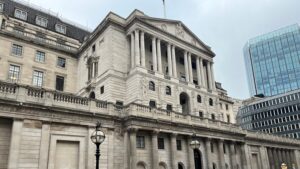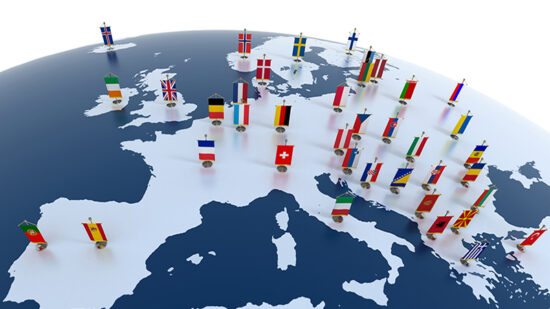How has the coronavirus affected your day-to-day work – from both a portfolio and workplace perspective?
Apart from disrupting just about every facet of daily living, shutting the workplace for fear of death and unleashing the greatest test to the resilience of the portfolio since the Great Depression of 1929 and the subsequent onset of the Second World War a decade later (neither of which I remember personally) I’ve noticed very little difference on a day-to-day basis really!
 What has been your biggest contributor to performance since the coronavirus hit markets? What has been your biggest detractor?
What has been your biggest contributor to performance since the coronavirus hit markets? What has been your biggest detractor?
The biggest contributor for us has been the VanEck Gaming and eSports ETF which is unlikely to feature in many peoples’ top 10s. It reflects our ability on the 8AM Focussed Fund to invest in whatever we like – and quickly. Tom McGrath and I, who co-manage the fund, looked at the initial pictures of lockdown in China and thought people there would not simply be staring at the walls indoors.
It was an area that had caught our eye previously but the timing made sense to us. Thereafter all the schools and universities started closing down worldwide and eSports began to gain more traction on TV so, as a theme, gaming and eSports is a beneficiary of the time we are living through. Personally, I’d rather have a game of Cluedo but, then, each to their own.
Our biggest detractor has probably been the L&G ROBO ETF – yet even that has outperformed the MSC World index over the year to date, as the chart below illustrates. It got hammered along with the market initially but has bounced more strongly, which is what, as managers, we would expect to see. Running our equity part of the portfolio on a thematic and tactical basis means that, if we get the themes right, and those themes are multi-year phenomena then, whenever there is a sell-off, they will bounce back more quickly as those themes have become too cheap.
The fund is not just about equities though, as we have our biggest single allocation to physical gold as well as US Treasuries. If we can protect on the downside and participate on the upside, then overall we should do OK for our investors. This year it has worked well.
Do you have any behavioural mechanisms in place for navigating the market volatility?
We each have our own money invested in the fund so we are very aware of not wanting to lose money unnecessarily by simply following what we ‘should’ do as determined by a benchmark or outdated asset allocation model – but, equally, we don’t want to miss out when an uptick comes along.
The mechanisms we employ are very human really – talking to each other a lot and agreeing when to take a bit of profit when we call it right, and being defensive when we don’t feel comfortable. We can act as a handbrake on each other if we get too enthusiastic or pessimistic. Using the human element during a period of unknowns such as this is useful, we think, because most algorithms have not been programmed to deal with a pandemic-led crisis.
What has surprised you most about markets during the coronavirus sell-off?
Quite frankly, we’re amazed that markets have rebounded as quickly as they have, with an apparent lack of awareness that so many companies are going to go bust and millions will become unemployed. I think that when reality sets in as to what this means for the consumer, markets may adjust.
The consumer is quite an important part of the economic recovery after all. If you overlay this crash with those of 2008, 2000/01 and 1929, you can see the second leg down, which happened in each of these three examples and which tested or exceeded the original lows, hasn’t happened with the 2020 version yet. Of course, this time it could be different …(!)
What feedback have you had from clients since the sell-off?
We have generally had good feedback from those that can let us know but most of our investors are clients of IFAs who can choose their own funds so, I suppose, the best feedback we can take away is that we have never had so much money in our fund as we have now. We are very small and so it is difficult for big asset allocators to use us, but our fund has gone from £10m to £14m in this past two months. Also, because we’re small, we’re relatively expensive, but we’re pleased that one of our supporting IFAs has said that performance is worth paying for. We’d love to be cheaper but the only way that is going to happen is if we get more into the fund, and the only way to do that is to continue to deliver performance that cannot be ignored. So over to us then.
What are the key messages you want to hear from your holdings at the moment?
Most of our holdings are in ETF format and so there is not much we can hear from them other than that they are doing what we expect them to do. The two active funds we hold are the Heptagon Future Trends and the S&W Artificial Intelligence funds and each of them are very good at communicating. Alex Gunz at Heptagon is particularly good with his weekly blogs and more in-depth reports, plus each manager is readily available if we want to talk to them personally.
How does this compare to other market sell-offs you have managed money through?
From a potential collateral damage point of view, it is off the scale while, from a central bank and government bail-out perspective, it makes the 2008 crisis look like a bucket collection for change outside the local supermarket. I had been banging on for a while before the Corona Crash that the run-up to it reminded me an awful lot of the run up to the Dotcom Crash of 2000.
What we have not had since then is a crash that had that second leg down that I described earlier, followed by a further two years at least of prolonged, painful bear market. Many financial and advisory firms disappeared back then and I fear that many firms today are just not prepared for a prolonged bear market, having got used to V-shaped bounces. I really hope the comparisons with 1929 are wide of the mark as that depression lasted for 10 years before morphing into the Second World War.
How do you find working remotely during volatile markets?
I actually think that working remotely has been beneficial in many ways as you’re not constantly interrupted by chatter, little of which is relevant. I’m no stranger to working remotely in any case. At my old place, I walked into the office one day and introduced myself to the new receptionist of three days. She very politely asked me who I was there to see.
What do you do for fun when you take a break from working at home?
If I was paranoid, I’d actually think this damned virus had it in for me personally, as the things that I do for fun are watching football (can’t do that), going horse racing (can’t do that), going to the pub (can’t do that), eating out and having nice meals in restaurants (can’t do that), going on holiday (can’t do that), going on holiday again (still can’t do that) and seeing family (can’t do that). Which leaves watching reruns of the Fast Show on Dave. Can do that endlessly.
What is your favourite snack when working from home?
My favourite snack would actually be a scotch egg, despite the fact that I don’t really like eggs of any kind unless their yolk is a pale colour and they come wrapped in sausage meat and breadcrumbs. Sadly, I’m not allowed these any more so, not liking eggs, it only leaves me with the scotch … which I’m not allowed until dark either so quite why the weight hasn’t fallen off me as yet remains a mystery.
Do you have a ‘top tip’ to share on working remotely?
Not really as everyone is different and certain things work for some that don’t work for others. Still, I suppose it helps if you don’t allow yourself to feel guilty if you want to spend a bit of time away from your computer or whatever else it is that you use for work and pursue a little personal enjoyment time doing something non work-related.
Andy Merricks is a fund manager at 8AM Global







